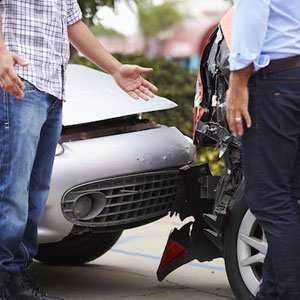
A recent case handed down by the Indiana Supreme Court provides a nice overview of two areas of our practice worth discussing in this paper for our clients: (a) The admissibility of prior drunk driving convictions in a personal injury case; and (b) punitive damages.
Andrew Pappas was driving to work when Danny Sims, who had been drinking at a bar, hit Pappas head-on. Sims’ blood-alcohol content was at .18% (more than double the legal limit of .08%). Pappas sustained several broken bones, including his ankle – which required surgery. Pappas hired legal counsel and sued for damages to compensate for the injures, including medical expenses, lost wages, future lost wages and impaired earning capacity, as well as pain and suffering. In addition to such “compensatory” damages, Pappas made a claim for “punitive damages,” which private parties can claim in a civil lawsuit and are intended to “punish” the defendant. The standard to prove punitive damages is higher, but their inclusion in this case was key.
Sims admitted his intoxication and his liability for the crash. However, his attorneys sought to exclude from evidence the fact that Sims had two prior convictions for drunk driving – 17 and 30 years prior to the current case. As a general rule, a defendant’s prior convictions, and even uncharged “bad acts,” are not admissible into evidence. The reasons are too lengthy for thorough analysis in this discussion, but there are several sound bases for these various rules, premised on the notion of fairness and relevance. As the old saying goes, however, there are exceptions to every rule, and this one is no different.
If someone does something bad (which we all have, to varying degrees at some point in our past), that does not mean the person is guilty of doing a similar bad thing again. In any type of case, our courts require one side to present sufficient evidence of their claim in the current case to justify a favorable ruling. Otherwise, we would have a system where a people could be found responsible for acts they did not commit just because they did something similar in the past. So, our courts limit evidence presented to a jury to those things that are relevant to the issues in the case. In Pappas’ basic personal injury case, the issues would include: (a) did Sims cross the center line causing the crash; and (b) how much money should be awarded to compensate Pappas for the injuries and damages he sustained? A thirty-year-old conviction for drunk driving would not generally tend to prove or disprove any of those issues. That conviction would probably only serve to make the jury angry at Sims and create a prejudice against him. Therefore, in the typical case for compensatory damages, the jury would be unlikely to know of one or more prior drunk driving convictions.
But the Pappas personal injury case was different. Sims was not just negligent – but intoxicated again. Pappas, therefore, did not just seek compensatory damages – but punitive damages (additional amounts to “punish” Sims). To prove punitive damages, a plaintiff must show more than just damages from a negligent lapse in judgment. “‘The central purpose of punitive damages is to punish the wrongdoer and to deter him from future misconduct . . . .’” Sims v. Pappas, 73 N.E.3d 700 (Ind. 2017). It requires a showing that (a) the defendant subjected the plaintiff to probable injury; and (b) he had an awareness of the impending danger but displayed a heedless indifference of the consequences. Id. Therefore, a claim for punitive damages brings makes the person’s state of mind a key issue.
As noted above, there are exceptions to the general rule that prior convictions or other bad acts are inadmissible at court. One such noted exception is where the evidence of prior misconduct is introduced not to show that the defendant is more likely to be guilty of that conduct on the present occasion, but rather, to show the defendant’s state of mind – such as knowledge, motive, or intent. In the Pappas case, the plaintiff claimed that the prior drunk driving convictions tended to show that had “at least some, if not substantial ‘tendency’ in demonstrating whether Sims’ conduct at the time of the collision was a conscious and voluntary act committed in reckless disregard of the consequences to others.” Id. Because a claim of punitive damages requires a showing something more than just “mistake of fact, honest error of judgment, overzealousness, mere negligence or other such noniniquitous human failing,” the defendant’s state of mind becomes a relevant issue. Because prior convictions for the same behavior could tend to show willful or wanton misconduct, rather than just mere negligence, the Indiana Supreme Court has confirmed that such prior convictions are admissible. Had there been no claim for punitive damages, such state of mind would not be at issue, and the prior convictions would not have been admissible.
Sims claimed that, because the admissibility of his two prior drunk driving conditions was limited to the issue of punitive damages, those convictions could have impacted other aspects of the case. The Court noted that Sims should have asked for a “bifurcated” trial – that is, a trial in multiple states. Here, Sims could have asked the trial court to have the jury determine liability and compensatory damages first. Then, if Pappas was successful and got an award of compensatory damages, the trial could go into a second stage to determine whether punitive damages would also be appropriate. At that second stage of trial, the court would allow Pappas to admit the evidence of prior drunk driving convictions and seek additional monetary award to punish Sims.

At Thomas E. Scifres, P.C., we aim to help you understand
what the personal injury mediation process will entail and
empower you to make informed decisions about your claim.
Schedule Your Free Personal Injury Consultation.